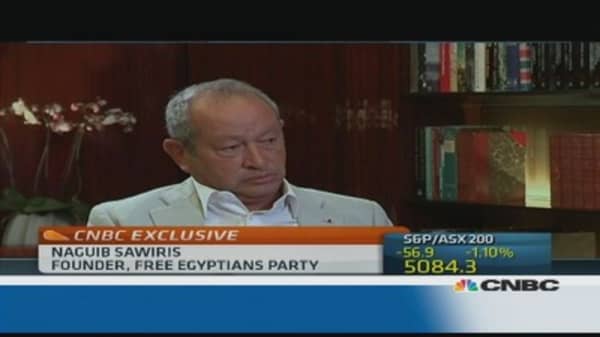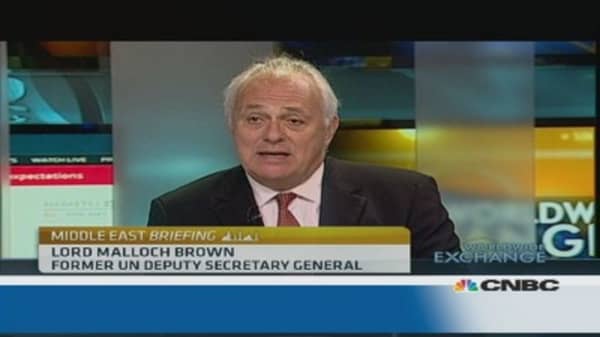Global equity markets headed south for a second straight day as growing worries about U.S. military intervention in Syria sparked heavy selling in stocks, while oil pushed higher and safe-havens such as Treasurys and the Japanese yen rallied.
Japan's benchmark stock index led a tumble in Asian markets early Wednesday, with a fall of more than two percent to a two-month low. Brent crude oil prices extended their gains to a fresh six-month high and a safety bid briefly pushed the yen to its highest level against the dollar in more than two weeks.
Emerging markets were also under renewed pressure, the Philippine stock market dropped 5 percent at one point, before clawing back to finish down 3 percent. European stocks followed their Asian counterparts lower on Wednesday morning, though losses were limited.
(Read more: Oil prices seen higher but shock not yet in the cards)
"There is so much uncertainty and (Syria) is not just an abstract event," Hugh Johnson, chairman and chief investment officer at Hugh Johnson Advisors, told CNBC Asia's "The Call." "You need to have a strong will to jump into these markets under these conditions."
Tensions over Syria have escalated in the past few days. The government is believed to have used chemical weapons recently against scores of civilians and rebels who have been fighting the regime for two years.
The U.S. could hit Syria with missile strikes as early as Thursday, senior U.S. officials told NBC news.
Egyptian billionaire Naguib Sawiris, the founder of the Free Egyptians Party, told CNBC that the West should help rid Syria of its "dictatorship" whether Syrian President Bashar Assad used chemical weapons or not.
"Even if he didn't use chemical weapons, when 1,300 people die in one day, what do you call that? Is it important whether they die by gas or by being shot by government forces? We want to help the Syrian people get out of a dictatorship but under no [circumstances] should fanatic, terrorist elements operating in Syria now be given the reins."
(Read more: US strike against Syria 'as early as Thursday')






